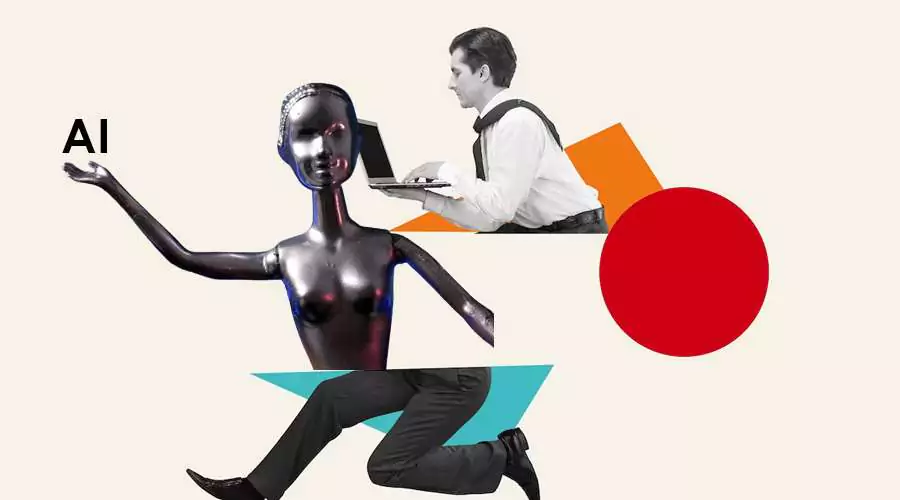
As Andrew Deck for Rest of World reported, Japan has recently introduced some of the world’s first legal guidelines for generative artificial intelligence (AI) imagery. This groundbreaking move has sparked a heated debate among artists, developers, and legal experts. The new guidelines have been met with mixed reactions, with some praising the move toward regulation while others argue that they favor developers over artists. This controversy has ignited a discussion about the balance between technological innovation and the protection of artistic rights.

✅ AI Essay Writer ✅ AI Detector ✅ Plagchecker ✅ Paraphraser
✅ Summarizer ✅ Citation Generator
Key Takeaways
- The guidelines aim to clarify the legal status of AI-generated imagery, which often draws from copyrighted material.
- Critics argue that the guidelines favor developers by protecting the use of copyrighted works to train AI models.
- Artists may struggle to prove copyright infringement under the new guidelines due to difficulty accessing training data sets.
- The guidelines are not yet formal regulations, but they indicate future policy direction.
The Debate Over AI and Copyright
The Japanese government’s guidelines, released in early June, address the legal complexities of generative AI imagery, including tools like Midjourney and Stable Diffusion. These AI image generators have been used to quickly create tailored imagery, but questions of copyright infringement have arisen due to their use of copyrighted material. This has led to a complex debate about the intersection of AI technology and copyright law, with stakeholders ranging from multinational corporations to individual artists voicing their concerns.
The guidelines have sparked a debate among various stakeholders, from multinational corporations like Netflix to everyday manga artists and animators. The Japanese Prime Minister, Fumio Kishida, has stated that Japan will continue to develop AI policy, aiming for “responsible” and “trustworthy AI.” This statement underscores the government’s commitment to addressing the challenges posed by AI technology while also acknowledging the need for further discussion and refinement of the guidelines.
The Impact on Artists and Developers
Legal experts and industry observers have told Rest of World that the current guidelines largely favor developers. They protect those who use copyrighted works from the internet to train their AI models while offering limited ways for artists to challenge perceived copycats. This has led to concerns that the guidelines may inadvertently encourage the misuse of copyrighted material, potentially undermining artists’ rights.
Under the new guidelines, artists will have to prove that a commercially sold, AI-generated piece of art has “similarity” with their own work. However, since training data sets are not publicly disclosed, artists may struggle to secure the necessary evidence. This could potentially create a significant barrier for artists seeking to protect their work, raising questions about the fairness and effectiveness of the guidelines.
The Future of AI Regulation in Japan
The guidelines are not yet formal regulations, but they indicate future policy direction. This suggests that the Japanese government is taking a proactive approach to AI regulation, setting a precedent for other countries to follow. However, the guidelines’ controversy highlights the challenges of developing fair and effective regulations for AI technology.
Some, like Taisuke Ono, a conservative Japan Restoration Party legislator, believe that more in-depth regulations may be needed to address the issue of copyright infringement. This perspective underscores the ongoing debate about the best approach to AI regulation and suggests that further refinement of the guidelines may be necessary.
Conclusion
While the new AI guidelines in Japan represent a step toward regulation, they have ignited a debate over the balance between protecting developers and safeguarding artists’ rights. As AI evolves, the need for clear, fair, and enforceable regulations becomes increasingly important. The controversy surrounding Japan’s guidelines underscores the complexities of this issue and highlights the need for ongoing discussion and refinement of AI regulations.
Related stories:
UK Universities Develop Guidelines for Ethical Use of AI
Brand New Chinese AI Companies in Beijing’s Silicon Valley
New District Rules Prohibit AI-Powered Homework Assistance for Denton ISD Students
Follow us on Reddit for more insights and updates.





Comments (0)
Welcome to A*Help comments!
We’re all about debate and discussion at A*Help.
We value the diverse opinions of users, so you may find points of view that you don’t agree with. And that’s cool. However, there are certain things we’re not OK with: attempts to manipulate our data in any way, for example, or the posting of discriminative, offensive, hateful, or disparaging material.